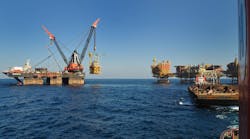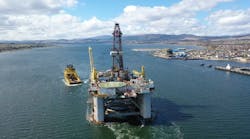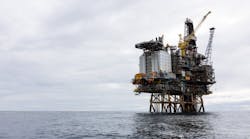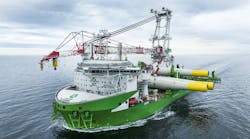Offshore staff
EDINBURGH, UK – Wood Mackenzie’s latest report suggests the oil and gas industry is in good shape.
The changing face of upstream value suggests strong growth in the upstream sector, with an estimated worth of roughly $3.2 trillion. This figure does not include exploration acreage or assets owned by national oil companies and governments.
Iain Brown, Wood Mackenzie’s Regional Upstream manager, said: “Most oil and gas companies expect higher oil prices to be maintained in the medium-term. This is reflected by the number of acquisitions in the second half of 2010, and a strong flow of new development plans and approvals.
“It has become increasingly difficult for international oil companies’ to access conventional, shallow water, and onshore projects, and where this is possible, prospects for value generation are often modest. There is therefore strong motivation to seek alternative opportunities and promote technological innovation.”
The report notes a shift over the past decade in portfolios of international companies toward four key themes - deepwater, LNG, unconventional gas, and unconventional oil. These now make up between 30% and 70% of future upstream value for the international majors.
“It is also notable that value prospects are still high in the traditional producing regions of North America, Europe, and Australia. Together these regions account for more than half ($1.7 trillion) of future upstream value for international companies,” said Brown.
The report finds that the Gulf of Mexico remains the world’s most valuable deepwater province, despite the many recent large finds off Brazil and Australia. However, Australia is set for strong growth, with LNG the preferred solution for developing large-scale gas reserves both here and in other remote locations.
Brown adds: “The international industry faces many threats and uncertainties, including resource nationalism, restricted access to conventional resources, and governments seeking larger shares of revenues during periods of high oil prices. However, there are solid foundations for long-term growth in these four key resource themes, and as unconventional reserves rapidly become part of the mainstream.
“There will be significant growth in ‘emerging’ provinces such as Brazil, and in West and East Africa, but there is also huge potential to be realized in traditional heartlands such as North America and Europe.”
08/23/2011




